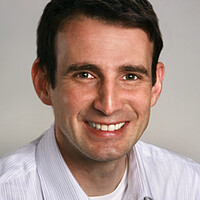Trump and military adviser differ on blaming Russia for hacks
Loading...
Donald Trump may not be ready to blame Moscow for cyberattacks targeting the Hillary Clinton campaign and the Democratic National Committee, but his senior military adviser says he's convinced it was Russia.
Michael Flynn, a retired Army lieutenant general, said he agreed with assessments from cybersecurity experts that operatives for the Russian government carried out attacks on Mrs. Clinton's campaign and other Democratic Party organizations, even as he decried the "corruption" that he said the hacks exposed.
"We should not be surprised that a communist state run by a totalitarian dictator wants to expose the weaknesses of capitalism and, frankly, show the level of corruption that exists in our political process," he said.
Asked if he was satisfied with the cybersecurity firm Crowdstrike's attribution of the hacks to a group known as Fancy Bear, which has ties to the government of Vladimir Putin, Mr. Flynn said he was. "Yeah, it seems to make sense that there's a concerted effort to understand what’s going on in our political campaigns."
The former head of the military's Defense Intelligence Agency (DIA), Flynn said he was not surprised by a foreign power's interest in the US election and he expressed curiosity about whether there might be additional revelations from the hack. Documents from the breach led to embarrassing revelations about friction within the party and prompted the resignation of DNC chair Debbie Wasserman Schultz on the eve of the Democratic convention in August.
"So, a state-backed attack against our political – I mean, against anything – is like, 'OK, that’s not surprising,' " Flynn said. "What they have decided to do and what they’ve decided to expose, you know, we’ll have to wait and see what’s about to come out. What’s been exposed is the level of corruption. I mean there’s an enormous level of corruption that’s been exposed in our election system," he added.
After the DNC revealed this summer the cyberattack on the organization, a previously unknown hacker known as Guccifer 2.0 took credit for the attack. Soon afterward, the antisecrecy organization WikiLeaks began publishing the DNC's internal documents and emails. This week, WikiLeaks said it will release more documents ahead of the election.
Many experts have suggested that Guccifer 2.0 is a cover for Russian operatives who handed the stolen documents to WikiLeaks. Flynn said WikiLeaks founder Julian Assange is doing work left undone by the Department of Justice, which investigated Clinton's use of a private email server when she served as Secretary of State but did not bring charges against the Democratic candidate.
"It's sad that the Department of Justice ... isn't doing anything about it," he said of the investigation of Clinton. "Whereas everyone's hoping Julian Assange does what the Department of Justice should be doing."
Since the beginning of Mr. Trump's candidacy, Flynn has been one of his most ardent supporters. He was widely reported to have been a short list candidate for vice president, though Trump eventually chose Indiana Gov. Mike Pence.
The retired general is now chief executive officer of Flynn Intel Group, a consulting firm, and was in Boston on Wednesday speaking about the cybersecurity challenges facing the US at Flight 2016, an event organized by the software firm Black Duck.
Trump has also expressed doubts about who is responsible for the hack of the Clinton campaign, the DNC, and other Democratic party groups, quipping in his first debate with Clinton that the hacks could have been carried out by a "400-pound hacker … sitting on their bed."
The FBI is investigating the Clinton and DNC hacks, but has not yet attributed the incidents to any nation or actor.
Flynn has courted controversy before in regard to Russia and Mr. Putin. He has appeared as an unpaid commentator on RT, the Russian broadcast network. And he sat next to President Putin at an event hosted by the network in 2015, raising eyebrows in Washington. In an interview with The Washington Post, Flynn likened CNN and MSNBC to the state owned and heavily censored RT and called the controversy over his dinner with Putin "boring."
Flynn's comments in Boston drew sharp rebukes from cybersecurity experts.
"Frankly, that’s just offensive," said Ira Winkler of Flynn's comments about the hacks uncovering corruption in the US political system. "Russia isn't looking to uncover corruption in the US election system. It’s looking for whatever benefits Russia the most."
Anger and concern about Russia's forays into US politics and the election system have generally cut across party lines, said Mr. Winkler, president of the Internet Security Advisors Group.
"This is geopolitical manipulation. You can’t say, "It's OK because it supports my worldview,' " he said. "This is like NATO where an attack on one country is an attack on everyone. An attack on one party should be treated as an attack on all."








